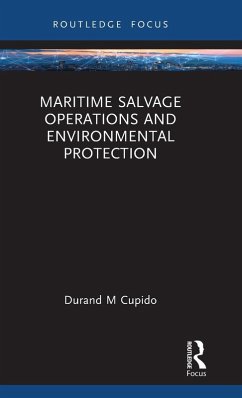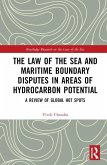This book questions the use of salvage law as legal regulatory framework for the remuneration of environmental services in salvage operations, proposing that such services should be based on direct contracting between commercial salvors and coastal States. Adopting an environment-first approach, it argues that direct contracting better serves and promotes environmental protection outcomes. It also takes a functional view of the law as a tool to promote values and sought outcomes. Salvage operations are recognised as the first line of defence against pollution following shipping incidents. Although regulated under the law of salvage, these operations form an integral component of a framework of environmental protection measures regulated under different legal instruments or laws. The law of salvage fails to effectively integrate salvage operations into broader pollution response mechanisms because it does not align comfortably with this framework of laws. Despite the emphasis on environmental protection in the 1989 London Salvage Convention, the Convention maintains the traditional notion of salvage operations as a service to property, while environmental outcomes and the remuneration of environmental services are positioned as a secondary outcome of the law of salvage. This book argues that directly contracting for environmental services bolsters the primacy of environmental protection and the functional use of law to further environmental protection and policy formulation. Direct contracting between coastal States and salvors for environmental services complements existing practices and pollution response mechanisms and provides a sound legal basis for the effective realisation of salvage operations as the first line of defence against pollution following shipping incidents without fundamentally altering the established commercial identity of the traditional law of salvage. This book will be key reading for students, academics, and practitioners working at the intersection of shipping and environmental law.
Bitte wählen Sie Ihr Anliegen aus.
Rechnungen
Retourenschein anfordern
Bestellstatus
Storno









